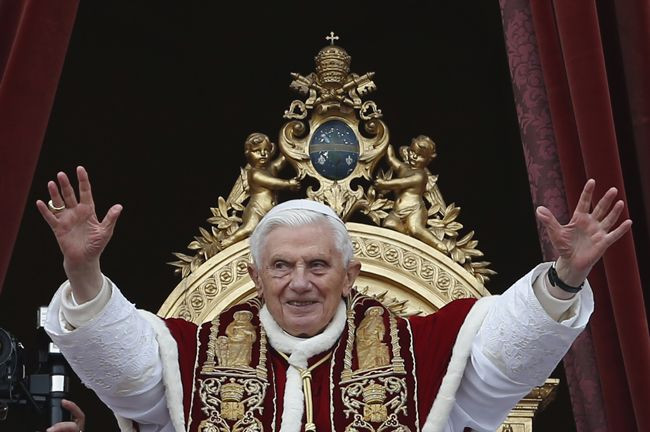
In his annual Christmas message to the world, Pope Benedict XVI urged people to never lose hope for peace and spoke out against the conflicts in Syria, Nigeria and Mali, where he claimed Christians are the target of "terrorism."
The 85-year-old pontiff read his "Urbi et Orbi" (to the city and the world) address Tuesday to an enraptured crowd in the tens of thousands, the Associated Press reported. Celebrating his eighth Christmas season, Pope Benedict delivered his greetings in 65 languages, and used the biblical analogy of the "good soil" to say the hope represented by Christmas should never wither, even in the worst scenarios.
"This good earth exists, and today too, in 2012, from this earth truth has sprung up! Consequently, there is hope in the world, a hope in which we can trust, even at the most difficult times and in the most difficult situations," he said.
Speaking of many of the world's troubled countries, the Pope reserved his harshest judgment for Syria, Nigeria and Mali.
"Yes, may peace spring up for the people of Syria, deeply wounded and divided by a conflict which does not spare even the defenseless and reaps innocent victims," he said.
"Once again I appeal for an end to the bloodshed, easier access for the relief of refugees and the displaced, and dialogue in the pursuit of a political solution to the conflict."
The Pope also went on to condemn conflicts in Mali and Nigeria; Islamist groups have waged violent campaigns in both nations.
"May the birth of Christ favor the return of peace in Mali and that of concord in Nigeria, where savage acts of terrorism continue to reap victims, particularly among Christians," he said.
Pope Benedict also offered China's new government an olive branch, asking its officials to "esteem the contributions of religions." China forces its citizens who are members of the Catholic Church to be members of a parallel state-backed Church rather than recognize the authority of the Pope.
During Christmas Eve Mass late Monday evening, the Pope urged followers to find room for God in their hectic lives.
"Do we have time and space for him? Do we not actually turn away God himself? We begin to do so when we have no time for him," he said.
"The faster we can move, the more efficient our time-saving appliances become, the less time we have. And God? The question of God never seems urgent. Our time is already completely full," he said.
The Pope claimed that societies have evolved to the point where many people's thinking processes don't leave room for the existence of God.
"There is no room for him. Not even in our feelings and desires is there any room for him. We want ourselves. We want what we can seize hold of, we want happiness that is within our reach, we want our plans and purposes to succeed. We are so 'full' of ourselves that there is no room left for God."
© 2025 Latin Times. All rights reserved. Do not reproduce without permission.




